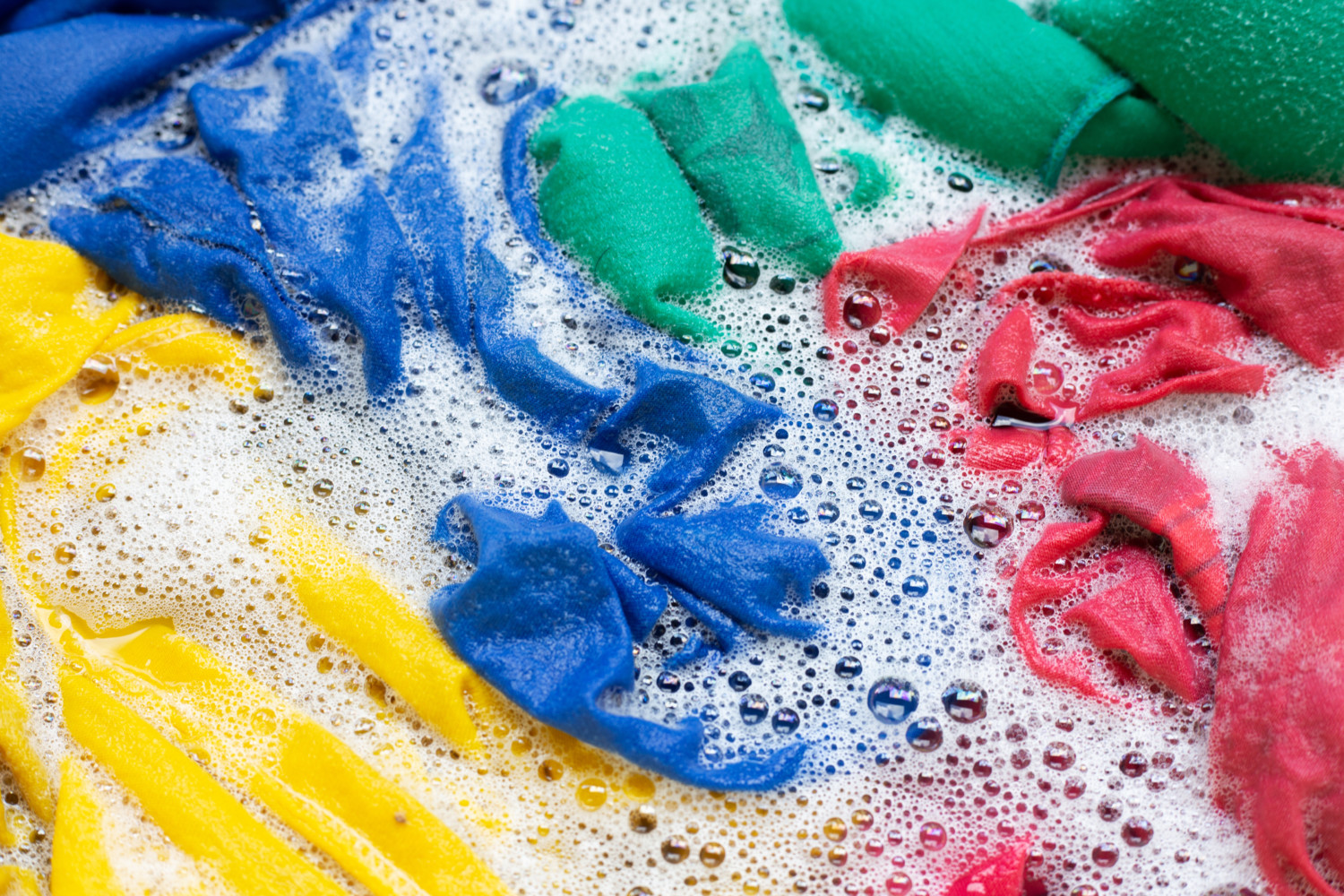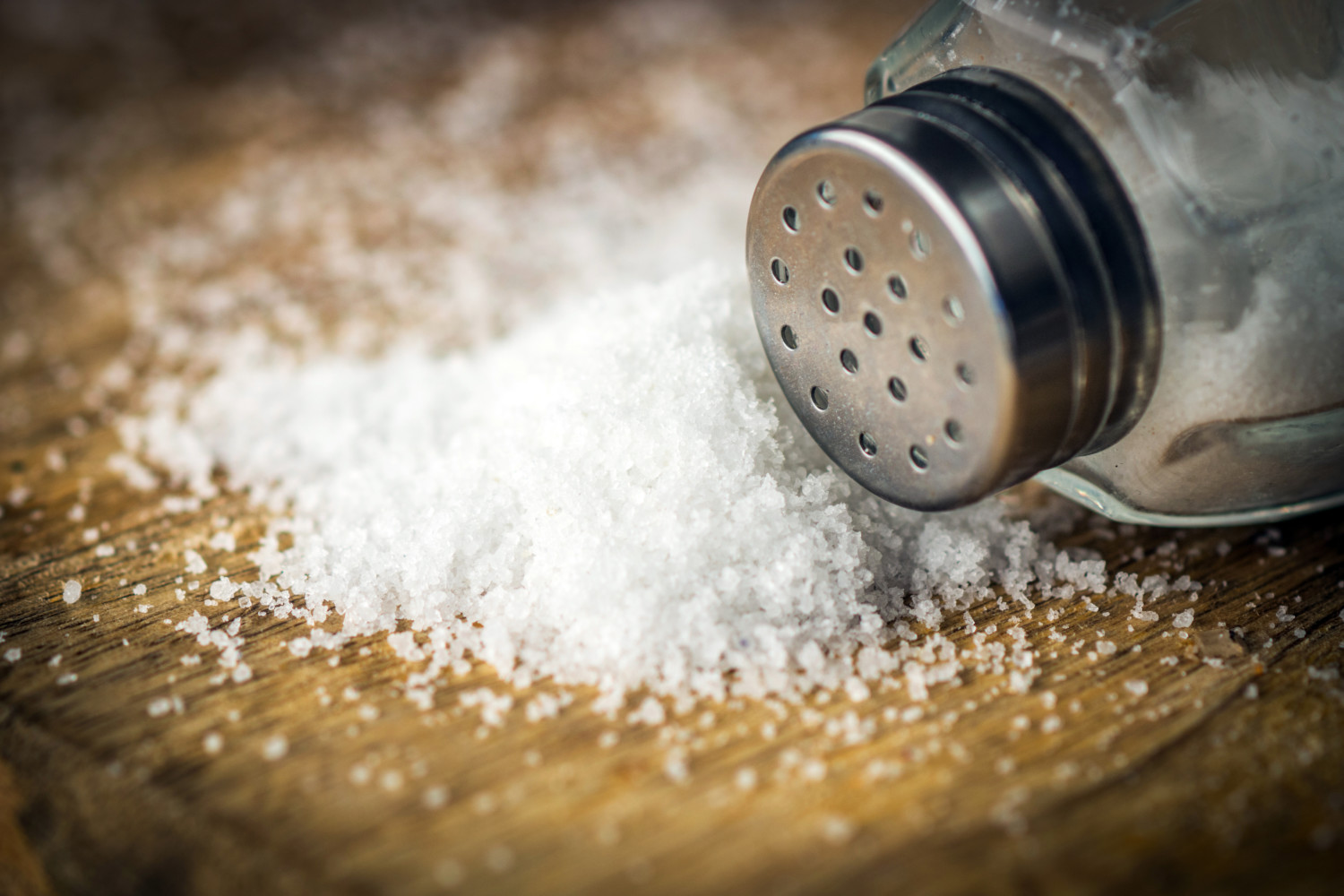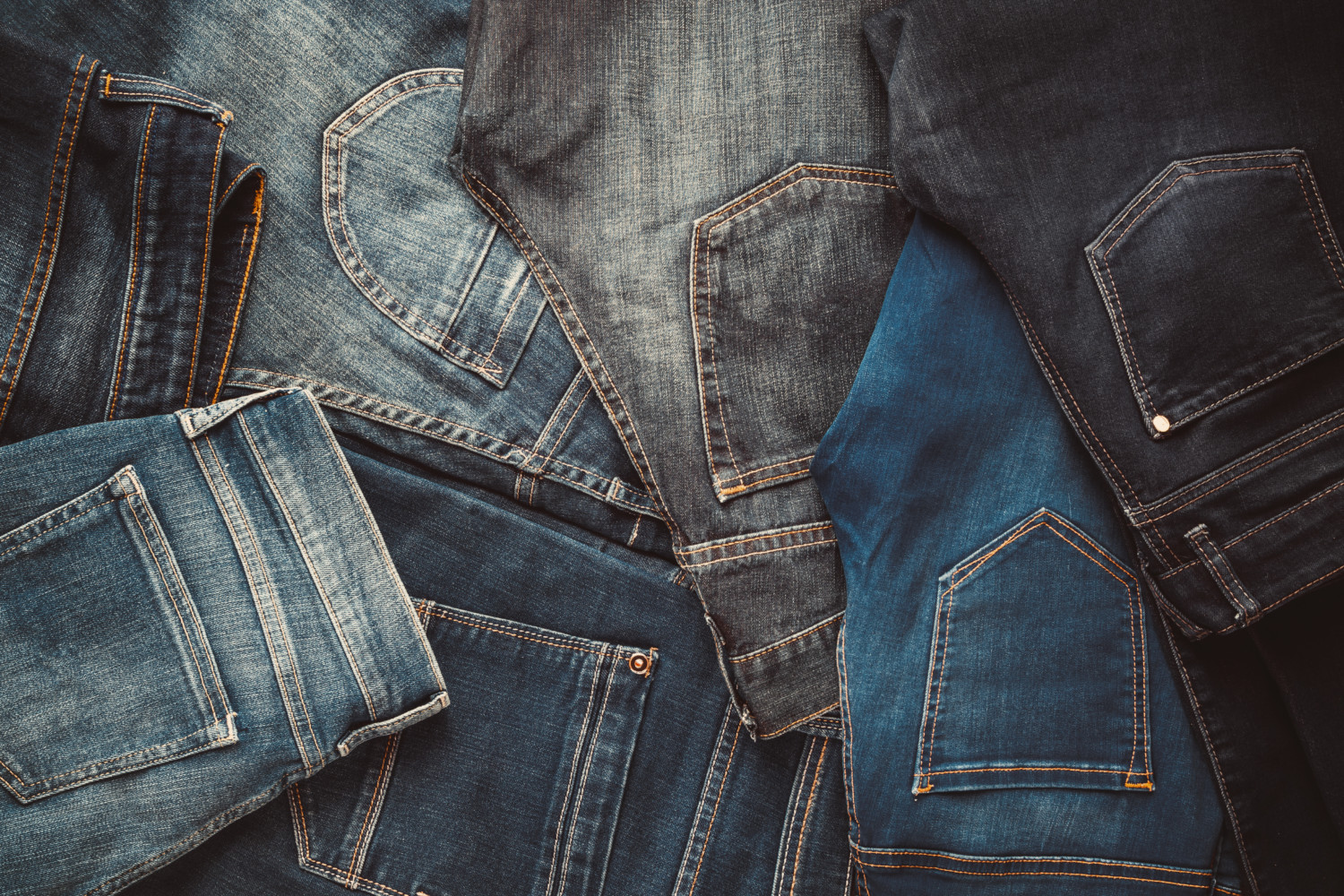Clothes can get pretty dirty, but cleaning them should be fairly straightforward when you have some tricks up your sleeve. Did you know there are other useful ingredients probably already sitting in your cabinets that can boost the effectiveness of your detergent? Some don’t require detergent at all.
Since no one wants to run a load twice, we’ve searched for the best ways to take out tough stains and odors or breathe new life into dingy fabrics. It turns out there are loads of secret laundry boosters out there! Here are our favorite tricks to try.

Add Vinegar To Laundry
One little secret that’s been used for decades is to add vinegar to laundry. Experts recommend adding it during the rinse cycle, because that’s the time it’s most beneficial to remove the residue of dissolved detergents or grime. Pouring 1/2 cup of vinegar into the fabric softener compartment before the last rinse cycle can bring dingy clothes back to life.
Next time your towels start to feel stiff, pour 2 cups of vinegar into the washer drum and bypass detergent altogether. The vinegar should strip away the residue that’s causing them to feel crunchy.
But that’s not all. Adding vinegar to laundry is also helpful with brand-new or second-hand clothes. In this case, pour 1 cup white vinegar into the wash cycle the very first time you wash them to help get tried of dust, odor, chemical and more.
One important note: Don’t ever mix vinegar and bleach. The combo creates a toxic chlorine gas.
A Dash of Rubbing Alcohol
To treat an ink stain on a white piece of clothing, splash a small amount of rubbing alcohol over the stain and let it soak in water. Just beware it can have a bleaching effect, so only try this on white items because you only want to remove the pen mark, not the fabric color!

Dish Soap to the Rescue
Quite possibly the most used secret ingredient in my house is good old-fashioned dish soap. When olive oil splatters on your shirt from chowing down too quickly on pasta night or a drop of salad dressing lands in your lap while digging into a big bowl of greens, it’s time to head to the sink. Dot the spot with a small drop of dish soak and let it sit on the stain before you wash. It’s a great way to get a leg up on removing a greasy stain.
Boost Cleaning and Deodorizing Capabilities with Borax
Adding 1/2 cup of borax to your load can help amp up any mediocre detergent. If you’re about to do a load and don’t have any on hand, try adding 1/4 cup of baking soda (use 1/2 for top-loading machines) along with your regular detergent. The chemical reaction in the baking soda will give your detergent a boost while deodorizing baked-in smells — goodbye, smelly sports gear.

Got Salt?
While distressed fabric might look cool when it comes to an old leather jacket, most of the time you want to keep your clothes and household fabrics looking fresh and well-kept. A cup of salt can act like a robust stain remover, plus it stops darks from bleeding into other fabrics. This is a great option for washable curtains or rugs. The saltwater solution can even help brighten the color of aging fibers.
Salt can also be used on white clothes to prevent yellowing. Try boiling yellowed cotton or linen in a mixture of water, 1/4 cup of baking soda and 1 tablespoon of salt. Let items soak for one hour, then launder as usual.
To tackle a rust stain, create a thin paste of salt and vinegar and spread it across the area. If possible, place it in the sun to bleach it or bring it over to the sink and pour boiling water over it. Let dry and see if the process needs to be repeated.
When cleaning a cotton sports uniform that’s got a blood stain on the knee, let it sit in a cold saltwater bath for an hour or longer. Pour boiling water on top and repeat if necessary. Sometimes it takes a few tries to remove deeply engrained rust or blood stains, so don’t give up.

To prevent your blue or black denim from fading too quickly, you can combine two powerful household ingredients: salt and vinegar. Soak items in a saltwater solution of one half water and one half white vinegar before the first wash. Turn the jeans inside out before sending them through the wash cycle and make sure the water temperature is set to cold when laundering.
What tip is most useful to you? Will you add vinegar to your laundry or a cup of salt to keep your whites bright? There’s nothing quite like that feeling of accomplishment when you knock out folding a fresh batch of clean clothes.
This story originally appeared on Simplemost. Checkout Simplemost for additional stories.


